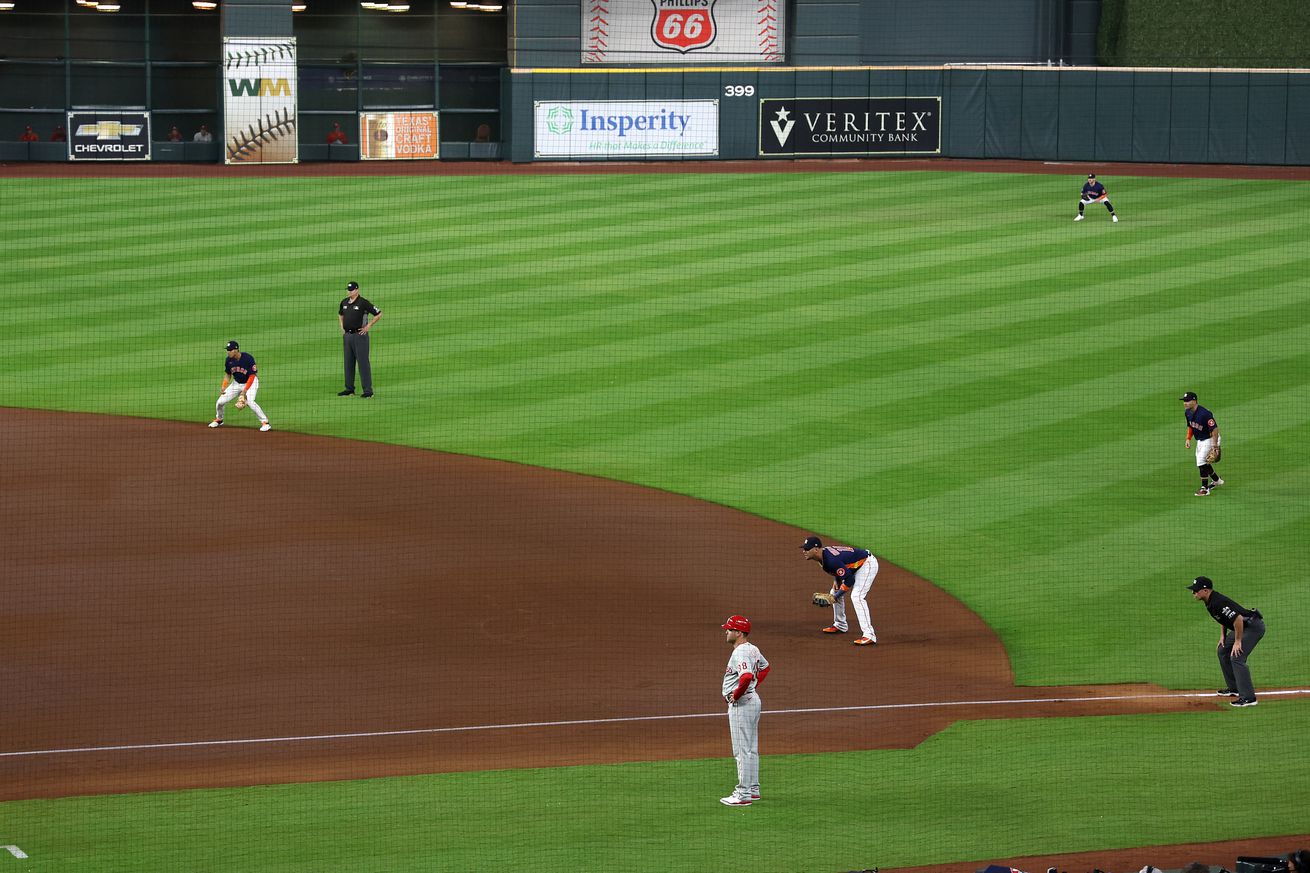Photo by Rob Carr/Getty Images
Fans get a chance to give their opinion on the slate of new rules implemented by MLB this season
Welcome to SB Nation Reacts, a survey of fans across the MLB. Throughout the year we ask questions of the most plugged-in fans across the country. Sign up here to participate in the weekly emailed surveys.
For decades MLB went from one year to the next without anything resembling a noticeable change to the game – at least from a rules and play standpoint. But in the last few years the game has started to make some major breaks from tradition.
That continued this offseason with a handful of new rules that could drastically change specific aspects of the game. And one rule being reportedly cemented in place going forward.
The general theme of the rule changes are a focus on pace of play and opening up small-ball offensive tactics.
Possibly the most obvious rule change addresses one of the hottest debates around the game over the last decade – what to do about the shift. With the new rule, a player who starts an inning on one side of second base has to remain on that side for the duration of the inning, unless a substitution is made. Simultaneously, all infielders must be on the infield dirt or infield grass at the time the ball is released from by pitchers hand. Defenders are allowed to move and shift after the ball is released. In practice, this prevents teams from overloading to one side against a pull hitter, opening the field for more batted balls to make it through the infield.
Another change that likely will be felt by fans is a limit on pitcher “disengagement.” A broadly termed rule, this limits pitchers to stepping off the rubber for any reason to only twice per-plate appearance. In other words, pitchers can’t repeatedly attempt to pickoff base runners or even repeatedly check them during a single at bat. The league hopes this rule both speeds up pace of play and encourages the running game on the bases.
Also helping stolen base attempts is one of the more unique rule changes this year. The size of the bases will increase to 18 inches, three inches bigger than previous. This is not only meant to improve the runners chance on bang-bang plays, but also reduce the risk of injury.
Further limiting pitchers ability to control a game is a pitch clock. Pitchers will only be allowed 15 seconds to throw the ball with the bases empty and 20 seconds with someone on base. Hitters will also be effected by the change, needing to be in the box and ready for the pitch with at least eight seconds left on the clock.
The final rule change won’t do much to change moment to moment aspects of the game, but it will make a big difference for stats. Possibly the goofiest part of the game, position players coming in to pitch, will now have significantly more limitations. Teams are only allowed to bring in non-pitchers if they are down by eight runs or more, leading by 10-runs or more in the ninth inning, or any time during extra innings.
Finally, the “ghost runner” rule that starts each half inning in extra-innings with a runner on second base.
In this week’s SB Nation Reacts survey, we want to know what you think of each of these rules. Vote below letting us know if you like each of the new rules.













